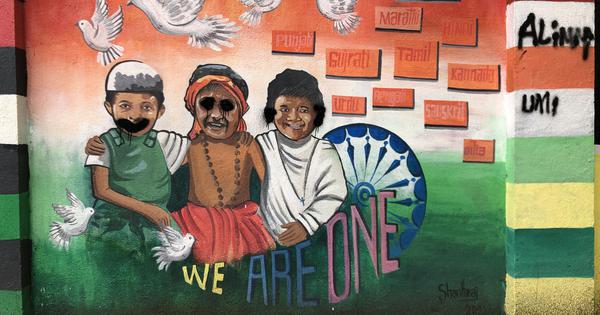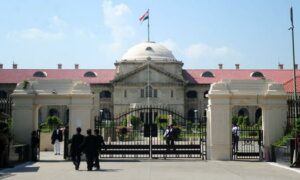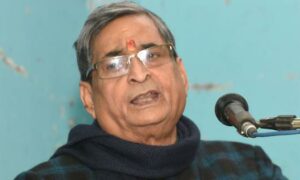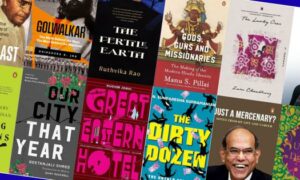
This week, Scroll’s Tabassum Barnagarwala wrote a report headlined “How MP police ignored constable’s word denying Jabbar Khan forcibly converted people to Christianity.”
In mid-August, Sehore in Madhya Pradesh made national news when a man named Jabbar Khan was arrested on charges of forcibly converting people to Christianity at a prayer meeting. Among those at the meeting was a police constable named Virendra Ahirwar. He told Scroll that he was born Hindu and remains so, even as he has followed “Christ’s teachings” for the last eight years.
“None of us have converted to Christianity,” he said. “It is a very personal belief.”
Ahirwar’s statement highlights a nuance often lost in political discussions: that following the teachings of a faith does not necessarily erase one’s identity.
This, to me, is a story that feels very Indian.
I was reminded of my conversation with my childhood best friend Sarah, who has lived in the United States for the past seven years. I, a Hindu, and she, a Muslim, studied in a Christian school. She told me her American friends were surprised and even a little puzzled that we sang hymns and recited the “Our Father” prayer every morning.
In the United States, secularism is very religion-neutral, she said. Any overt religious practice, whether in schools or public life, is often questioned.
What struck us was how ordinary it all felt to us. We never questioned it. It was part of daily life.
I also stayed in the school hostel for two years and attended Sunday school. I enjoyed the singing and dancing we did in church. A bonus was that, in our all-girls school, teenage girls could interact with boys. It was simply part of the school routine, a way for the community to come together.
Looking back, I think I was better for it. Religious activities were much more than faith: they were more about community, dialogue and shared stories.
Our exposure to different faiths in school introduced us to a variety of ideas and led to discussions without threatening our identities. In the 2000s, smaller towns had only a handful of good schools, which meant classrooms brought together students from across social backgrounds – a phenomenon we rarely see in adult public spaces now.
This is not just personal nostalgia. India’s secular tradition cannot be separated from our country’s journey. When we talk about secularism in India, it’s worth remembering the Supreme Court’s landmark 1994 SR Bommai ruling, which held that secularism is part of the Constitution’s “basic structure”.
And then there is the discussion about how Indian social secularism often goes beyond neutrality. It thrives in shared rituals, festivals and fluid identities, as people come together to celebrate cultural and religious events without abandoning the faith into which they were born.
There are many examples. This year, during Ganesh Chaturthi, several trending Instagram reels showed that the procession of the popular Lalbaugcha Raja traditionally halts at the Hindustani Masjid in Byculla before the idol is immersed. Members of the local Muslim community welcomed the procession with flowers.
It is traditions like these that reaffirms that social acceptance of pluralism still has some space in India.
Even our economy reflects our inclusivity. Christmas-time sales do as well in India as the Diwali sales even though Christians make up only about 2.5% of the population. If Islamophobia were less prevalent, perhaps Eid celebrations would see wider economic participation in India.
We should not credit capitalism alone for this. In other secular countries, such as the United States, Jewish economic and cultural influence is strong, but federal holidays do not recognise Jewish festivals.
In India, we have holidays for Eid, Christmas, Diwali, Mahavir Jayanti and Buddha Purnima, among other festivals.
But then this week, there were also news items about how Garba events during the Navratri season in Madhya Pradesh, Chhattisgarh and Maharashtra are attempting to restrict entry to non-Hindus. Some venues were even Aadhaar cards at the gates.
Political discourse frequently misrepresents expressions of pluralism as coercion to convert.
Why does a society that has had a culture of living with hybrid identities, shared rituals and community celebrations now struggle to trust this openness?
Sehore constable Virendra Ahirwar’s words return to me, simple and precise: following Christ’s teachings did not require abandoning Hinduism.
Perhaps the question we should ask ourselves is not whether faith is being imposed but why the acceptance of multiple beliefs is suddenly being seen as a threat.
📰 Crime Today News is proudly sponsored by DRYFRUIT & CO – A Brand by eFabby Global LLC
Design & Developed by Yes Mom Hosting






